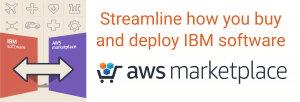SAFe Scrum Master 5.0 with SSM Certification
In this two-day course, attendees will gain an understanding of the role of a Scrum Master in a SAFe enterprise. Unlike traditional Scrum Master training that focuses on the fundamentals of team-level Scrum, the SAFe Scrum Master course explores the role of the Scrum Master in the context of the entire enterprise, and prepares attendees to successfully plan and execute the Program Increment (PI), the primary enabler of alignment throughout all levels of a SAFe organization.
Defining and Managing Requirements with Use Cases
All development methodologies are based upon stakeholder, user, system, software and hardware requirements and align with the IIBA Business Analyst Body of Knowledge. This topic covers how to employ use cases effectively to define requirements and use them throughout the development cycle, including elicitation and testing. This course is the first in a series that presents industry best practices for requirements definition and management.
Improving Your Requirements Elicitation Techniques
You can reduce project risk with best practices requirements elicitation techniques. This topic covers the 10 techniques that will allow you to document processes and high-level capabilities, clarify user expectations, identify gaps and conflicts, and prioritize requirements. This course is the second in a series that presents industry best practices for requirements definition and management.
Requirements Management Basics
Clear requirements are essential to project success. This topic covers requirements language and modeling techniques, 10 best practices for specifying requirements, and how to validate requirements and manage changes. This course is the third in a series that presents industry best practices for requirements definition and management.
Essentials of UrbanCode Deploy
In this course, you learn how to configure IBM UrbanCode Deploy for the deployment of a pet store application to two different environments. You create resources and versioned components, configure the environments, and deploy the application. You also create teams and roles and learn the fundamentals of security. Hands-on labs use IBM UrbanCode Deploy in a cloud environment and cover resources, components, applications, deployment, and security.
Fundamentals of IBM Rational System Architect
This course provides an introduction to using IBM Rational System Architect. Working with a simple scenario, you learn about the Rational System Architect environment, including an overview of:
Supported methodologies and notations, Encyclopedia concepts, Drawing techniques, Model components, Reporting
IBM Rational Synergy Administration
This course is designed to provide you with an understanding of the operations required to administer Synergy. It presents information enabling a system administrator to configure the Synergy environment for optimal use of system resources.
IBM Rational Synergy Build Manager
In this course, you learn to use IBM Rational Synergy to meet their projects’ configuration management goals. You will learn the processes needed to define and manage projects, releases, baselines, and work areas.
IBM Rational Synergy Developer Advanced
This course covers concepts found in the solution environment like the Synergy Project, Work Area, Directory Members, Tasks, Versions, Purpose, Release, Baseline, Project Grouping and how to apply these features during day to day development or when using Synergy as a Team Leader.
IBM Rational Synergy Developer
This course provides an introduction to how you can use Rational Synergy as part of your development activities. The course offers you hands on practice with the Rational Synergy Graphical User Interface and shows how it can be used in the complete development cycle as you, and the other members of your team, complete the work that you have been assigned.


